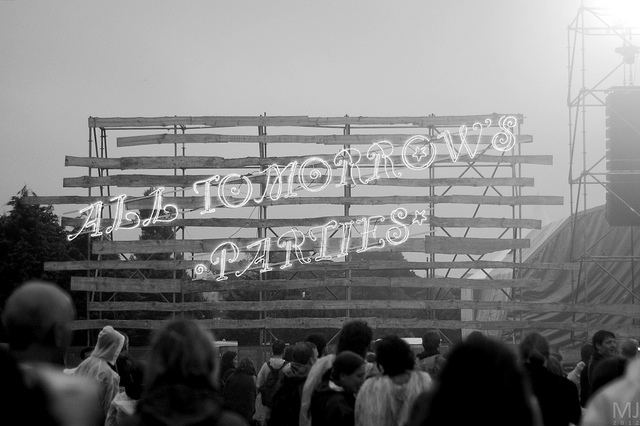Tomorrow’s party: a bold new approach and meaningful engagement are required
Political parties are an indispensable part of any functioning democracy, essential for aggregating political demands and educating voters about policies. But the public have seldom thought less of them, with a majority of voters considering them corrupt. The Electoral Reform Society have recognised this, and launched a new project to look at what the party of the future may look like, says Will Brett.
Kind words are rarely spoken about political parties nowadays. If members of the public think of them at all, they tend to see them as part of the problem with politics, rather than as part of the solution. In 2010, two in three people in Britain believed political parties to be corrupt – more than any other institution. And this declining trust is reflected in ever-deteriorating membership. Since 1997, Conservative membership has fallen from 400,000 to 134,000, Labour membership from 405,000 to 193,000 and the Liberal Democrats from 87,000 members to 49,000.
This grim picture makes it hard to recall the positive case for political parties, so it is surely worth rehearsing it. Parties are essential for the health of our representative democracy. They are the necessary building blocks of governments or governments-in-waiting, and at the same time they are groups of people coming together to pursue common political goals. They are able to articulate people’s policy wishes at the national level, but also to order and prioritise them into coherent programmes of government. In theory at least, parties are not remote elites imposing their diktats on the people, but are themselves collections of people expressing their democratic will. At their best, parties can bridge the divide between people and politicians, with one foot in civil society and one in the state.
Such a positive vision is clearly a long way off from the current reality. So what can political parties do to get there? What role, realistically, can parties expect to play in the 21st century, and what reforms do they need to make now in order to reconnect with the public?
The main political parties are not blind to the urgency of reform. Recent years have seen experiments with candidate selection, membership structures and the nature of party-political activity at the local level. The Conservatives have run several open primaries, one of which resulted in the high-profile selection of Sarah Wollaston for Totnes. Labour has invested considerable resources in a new model of party activism it describes as community organising, under the auspices of the US organiser Arnie Graf. And both parties are seeking to learn lessons from the micro-targeting strategies employed by Barack Obama’s 2012 campaign.
But they need to go further, and faster. The Electoral Reform Society has launched a major new programme of work called Tomorrow’s Party. We want to provide a platform for all the parties to come into contact with bold, original ideas for reform. The first stage of our work is a public consultation. We want to hear from party activists, academic experts, politicians and members of the public about how they see the future political party.
The consultation takes the form of three questions:
- What are parties for?
This is designed to encourage people to think positively about the role which political parties can play in our democracy. Too often, the assumption is that parties are good for nothing.
- What does the party of the future look like?
We want to encourage long-term, visionary thinking. The mainstream political parties were founded in the crucible of the 19th century. People have changed immeasurably since then, yet many of the structures and institutions which parties created in the 19th century remain unreformed to this day. What should a 21st century party look like?
- What can parties do now to reconnect with people?
We are looking for specific reforms which parties should consider adopting immediately in order to address the growing divide between people and politics.
—
Note: You can contribute to the ERS consultation here. This post represents the views of the author, and does not give the position of Democratic Audit or the LSE. Please read our comments policy before commenting. Shortlink for this post: https://buff.ly/18cX0HS
—
 Will Brett is Head of Media at the Electoral Reform Society. His career has spanned politics, journalism and policy research. He has worked on a number of national magazines including the New Statesman and The Week, and has contributed to a wide range of journalistic, academic and policy-focused publications. As parliamentary researcher for Stella Creasy MP he co-ordinated the national campaign to regulate payday lending. He has also worked as a researcher for the pan-European Augur Project, modelling future directions in European politics.
Will Brett is Head of Media at the Electoral Reform Society. His career has spanned politics, journalism and policy research. He has worked on a number of national magazines including the New Statesman and The Week, and has contributed to a wide range of journalistic, academic and policy-focused publications. As parliamentary researcher for Stella Creasy MP he co-ordinated the national campaign to regulate payday lending. He has also worked as a researcher for the pan-European Augur Project, modelling future directions in European politics.






 Democratic Audit's core funding is provided by the Joseph Rowntree Charitable Trust. Additional funding is provided by the London School of Economics.
Democratic Audit's core funding is provided by the Joseph Rowntree Charitable Trust. Additional funding is provided by the London School of Economics.
[…] post was originally published by Democratic Audit. Contribute to our Tomorrow’s Party consultation […]